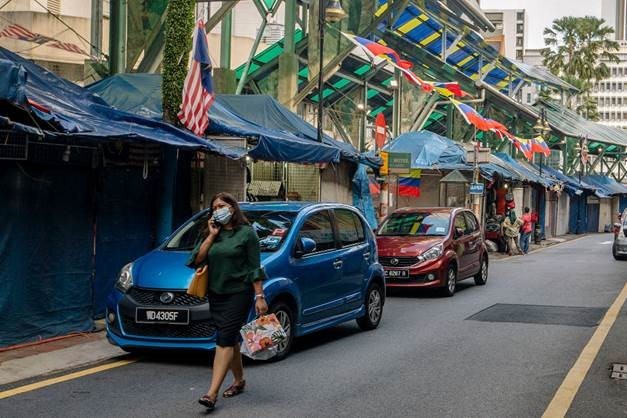
KUALA LUMPUR, Feb 4 - At least 88 per cent of businesses operating in Malaysia’s three major cities reported decrease in sales due to Covid-19 last year, a survey conducted by urban rejuvenation outfit Think City revealed.
Its survey titled ‘Business Community Pulse Check Report 2020’ showed a vast majority of businesses polled in Kuala Lumpur, Johor Baru and George Town reported a decrease in sales over a period of 12 months leading up to August 2020.
“The city to have the greatest proportion of businesses report a decrease in sales was downtown Johor Baru at 90 per cent, followed by downtown Kuala Lumpur at 85 per cent and George Town at 82 per cent.
“Only 2 to 5 per cent of businesses in all three cities reported an increase in sales in the 12 months to August 2020,” it said.
The top three sectors affected in all three cities were fashion, clothing and textiles, followed by restaurants and bars, and finally department stores.
It added that at least 55 per cent of businesses reported being temporarily shut down, likely a result of the nationwide movement control order (MCO) and conditional MCO (CMCO) imposed between March and June last year.
Apart from decrease in sales and temporary shutdowns, respondents also listed difficulties in procuring supplies and having to reduce the wages or working hours of their employees as among the top impacts of the lockdown due to Covid-19.
“Given the ongoing occurrence of the pandemic which has caused changes in customer behaviour and certain states to go back into MCO, Covid-19 is likely to continue impacting the sales performance of businesses in all three cities,” the report said.
With most businesses reporting an overall decrease in sales, the report said this subsequently led to a decrease in profit for at least 79 per cent of businesses over the same period, a significant sum as compared to only two to four per cent of businesses reporting an increase in profit.
As for employment, 31 per cent of respondents in Johor Baru reported a decrease in the number of employees over the period, compared to 23 per cent and 28 per cent in downtown KL and George Town respectively.
“In downtown KL and downtown Johor Baru, it was predominantly food and beverage operators (at least 23 per cent) and fashion retailers (at least 21 per cent) that reduced their number of employees.
“In George Town, it was predominantly food and beverage operators (34 per cent) and hotel operators (10per cent) that reduced their number of employees ,” the report said.
On whether businesses anticipated their sales to remain about the same or decrease over the next 12 months from August 2020, at least 73 per cent of them replied in the affirmative.
“Of those who selected this outlook, the majority (at least 83 per cent) were businesses that had previously reported a decrease in sales in the 12 months prior, indicating that they anticipate their sales to decrease further,” it said.
With Covid-19 still persisting both in Malaysia and globally, at least 23 per cent of respondents said they do not know if they will remain open at the end of 2021 due to the uncertainty the pandemic has brought over the economy, especially to the tourism and hospitality sectors.
“However, at least four per cent of businesses had contrasting views, having mentioned that they are not confident they will remain open at the end of 2021," it said.
Businesses who selected this answer were predominantly fashion retailers. A number of hotels in George Town also selected this answer, it said, adding that 62 per cent of those polled said they were confident of remaining open throughout 2021.
In its summary, the report said all three cities recorded similar results in market conditions and business sentiments despite being located in different parts of the country.
Think City managing director Hamdan Abdul Majeed said that the survey results showed how vulnerable downtown heritage areas are to shocks, and that one of the main lessons learnt from the Covid-19 pandemic is that Malaysia needs to invest further in building resiliency within the urban communities.
“Many heritage areas in Malaysia are over-reliant on international tourism," he said.
“While it is an important economic contributor, we need to invest into diversifying the cultural economy and ensuring there are authentic experiences for locals and visitors alike.
"We also need to offer a range of economic activities, housing and amenities so that people can live and work nearby,” he added.
The survey involved a total of 875 respondents polled in the downtown areas in the three cities back in August 2020.
Source: https://www.malaymail.com/news/malaysia/2021/02/04/survey-almost-nine-in-10-businesses-in-kl-jb-george-town-saw-sales-drop-in/1946726

